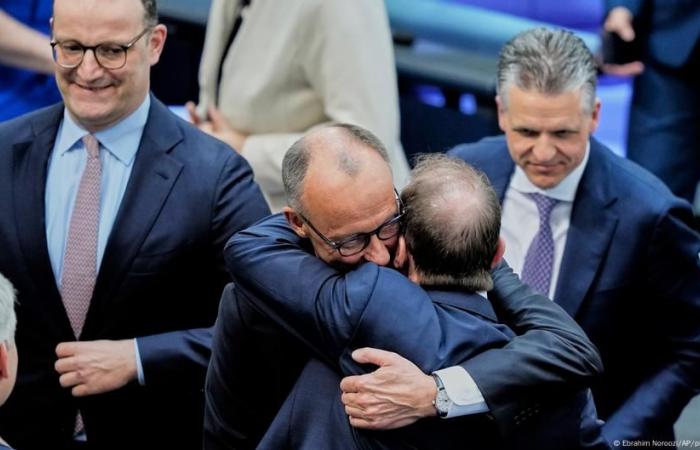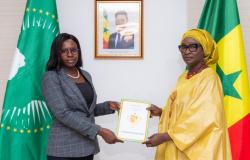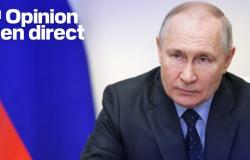Chancellor Friedrich Merz’s new Cabinet has also officially been appointed by German President Frank-Walter Steinmeier.
The country’s 17 ministers were set to meet late on Tuesday night for the first Cabinet meeting.
Here is a reminder of some of those that will serve:
Vice Chancellor and Finance minister Lars Klingbeil (SPD)
Social Democratic Party (SPD)
Succeeds Finance Minister Christian Lindner (FDP) and Jörg Kukies (SPD) and Vice Chancellor Robert Habeck (of the Greens)
Background: Former leader of the SPD’s youth wing.
Former roles: Served as constituency assistant to former Chancellor Gerhard Schröder (though he later repudiated the former chancellor’s pro-Moscow stance), served as SPD general secretary, then as party chairman (since 2017)
Notable stances: He once opposed scrapping some unemployment benefits, but later dropped this stance. He is also in favor of strengthening Germany’s military.
Foreign Minister Johann Wadephul
Christian Democratic Union (CDU)
Succeeds Annalena Baerbock (of the Greens)
Former roles: German Bundestag member since 2009, deputy leader of the conservative CDU/CSU faction in parliament, responsible for foreign and defense issues
Notable stances: Widely seen as loyal to Merz and among his staunchest supporters. Jana Puglierin of the European Council on Foreign Relations expects Wadephul will steer critical relationships with the US, China and Russia.
Defense Minister Boris Pistorius
SPD
Stays on in his role as defense minister
Background: Pistorius is the only member of outgoing Chancellor Olaf Scholz’s cabinet to take part in the new government as one of Germany’s more popular politicians.
-Former roles: Interior minister in Lower Saxony (until 2023)
Notable stances: Pistorius has said Germany should be ready to face a war by 2029 due to increasing threats from Russi. He was nominated to become the SPD candidate for chancellor following the collapse of Scholz’ coalition government last year, but he withdrew from the race when Scholz signaled he would run again.
Interior Minister Alexander Dobrindt
Christian Social Union (CSU)
Succeeds Nancy Faeser (of the SPD)
Former roles: Transport minister under former Chancellor Angela Merkel (from 2013 until 2017), Bundestag member since 2002
Notable stances: Outspoken supporter of curbing illegal migration, with a plan to tighten border control within the first week in office.
Justice Minister Stefanie Hubig
SPD
Succeeds Volker Wissing (independent, previously with business-friendly FDP)
Background: Former judge and public prosecutor
Former roles: Education minister in her home state of Rhineland-Palatinate, junior minister in the federal justice ministry
Notable stances: Hubig has often spoken about the need to increase efforts to combat antisemitism in Germany. She takes up the post amid growing calls for a ban on the far-right AfD party.
Economy Minister Katherina Reiche
CDU
Succeeds Robert Habeck (of the Greens)
Former roles: CEO of regional energy infrastructure firm Westenergie, former Bundestag member (from 1998 to 2015)
Notable stances: Reiche faces criticism over her former role as CEO of an energy infrastructure firm, with some saying her government post could pose a conflict of interest.








